HOW CAN WE HELP YOU? Call 1-800-TRY-CHOP
In This Section
Trust Yourself and Stay True: Inspiration From CHOP Women in STEM

Our women in STEM gallery features individuals nominated by their respective Center of Emphasis leaders.
Every year since 2018, women in science, technology, engineering, and math (STEM) fields at Children's Hospital of Philadelphia have shared their words of wisdom and guidance for the next generation. These individuals, nominated by leaders of their Centers of Emphasis, have emphasized the importance of protecting one's time, taking on challenges, and creating a community while working in areas historically underrepresented by women.
Our women in STEM gallery has grown a little larger every year, and we're proud to share that this year's edition features more nominated individuals than ever before. So, over the course of Women's History Month, a three-part Cornerstone series will share inspirational advice from 23 remarkable researchers. This year's nominees embrace the same energy of inspiration, sharing tidbits of advice that include trusting the value of one's contributions, developing a personal mantra, and dreaming big.
Amanda Dinofia, MD, MSCE: 'Dream big.'
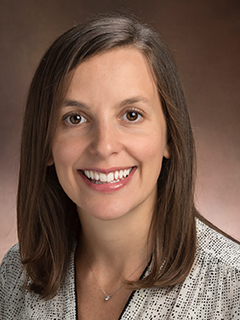
Amanda Dinofia, MD, MSCE
Attending Physician, Division of Oncology
"Medicine allows you to combine so many types of science, and applying that scientific knowledge to the care of patients is incredibly rewarding to me. However, it is most important that you find something that you are truly passionate about pursuing. Achieving your goals will require hard work, and there will certainly be setbacks along the way. But if you are working toward something that you truly love, then there is joy in the journey, the sacrifices are worth it, and no challenge is insurmountable. Finally, women have a tendency to temper their ambitions for a host of reasons, but allow yourself to dream big. Be confident in what you can contribute to the STEM community, and do not dim your light for anyone!"
Leila Bateman: 'Bring your whole self to whatever you do!'
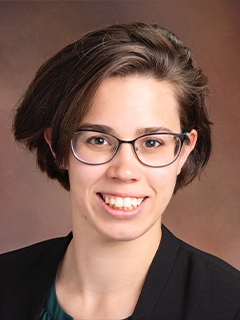
Leila Bateman
Manager, Clinical Data Management, Center for Autism Research
"As an artist by training, it took me a while to see myself as included in the STEM world. Despite taking part in scientific research and gaining technical expertise, I always had imposter syndrome. Over time, I was able to find where my different perspectives and ways of thinking added value, and to bring those parts of myself to my day-to-day work. It's been rewarding to bring my own art-science blended 'STEAM' skillset to the table to creatively problem-solve, design, and communicate new data infrastructure in support of our incredible scientists, clinicians, and administrators, and ultimately, the broader autism community.
I'm particularly passionate about welcoming others who might not feel like they 'fit,' so that their voices can become part of the STEM community too. Diverse and inclusive teams ask new questions, consider different alternatives, innovate novel solutions, and create better science. So I would advise others: Bring your whole self to whatever you do! Look for a workplace that doesn't just accept but also values the differences you bring to the team. Ask questions, try new things, and be open to people and ideas different from your own — those unexpected intersections can be where the best new ideas and opportunities come from!"
Kate Wallis, MD, MPH, FAAP: 'If you have a passion, do not be daunted to pursue it.'
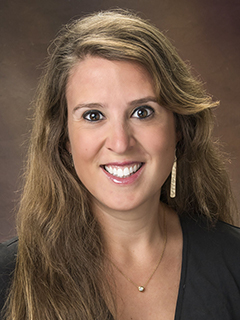
Kate Wallis, MD, MPH, FAAP
Attending Physician, Division of Developmental and Behavioral Pediatrics
"I am energized every day by the possibility of discovery and by mentoring other young women. I use my research to try to help reveal inequities that exist, and to try to find solutions to ameliorate them. If you have a passion, do not be daunted to pursue it. Having a career where I split my time between clinical work and research gives me the flexibility to pursue the topics that interest me, and to also spend time with my family with a more flexible schedule than clinical work alone would permit."
Lea Surrey, MD: 'Your most powerful cheerleader is yourself.'
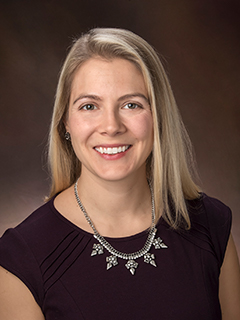
Lea Surrey, MD
Assistant Professor of Pathology and Laboratory Medicine
"Develop a personal mantra (or two!) that drives you. It is important for women to find role models to emulate and mentor(s) who guide you; but at the end of the day, your most powerful cheerleader is yourself.I have adopted two mantras that I use when I encounter curves, forks, and bumps in the road. These help me build internal resilience and perseverance.The first is "just keep swimming" from the movie "Finding Nemo." You can insert anything in place of "swimming" to fit the situation, but from personal experience, "swimming" seems right most of the time.
The other mantra I have found extremely useful, particularly during the last two years during COVID has been, "The only constant in life is change." This is from the Greek philosopher Heraclitus and is applicable to all aspects of life, both professionally and personally. No matter what mantra you use — it's important to encourage and cheer yourself on!"
Yang-yang Ding, MD: 'Trust that your thoughts and contributions are valuable.'
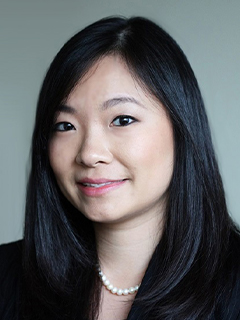
Yang-yang Ding, MD
Attending Physician, Division of Oncology
"Don't be afraid to step outside your comfort zone to acquire new skills, and don't be afraid to not be good at it at first. Fear of failure can hold us back from a lot of things that are ultimately very rewarding in science (mastering a new skill, establishing a new protocol, etc.). Also,never be afraid to ask lots of questions. That includes scientific questions, big and small, but also clarifying questions that help you learn. Surround yourself with people who also like asking questions, and like answering them!
Also, trust that your thoughts and contributions are valuable, and don't hesitate to speak up. Relatedly, I've found that teamwork in science often yields results greater than the sum of its parts, so always be open to collaboration. Lastly, intentionally maintain things outside of work that bring you joy: relationships, hobbies, and interests. Those will help you maintain perspective and rejuvenate you to keep going in science!"
Casey Zampella, PhD: 'Even the small wins are worth being proud of!'
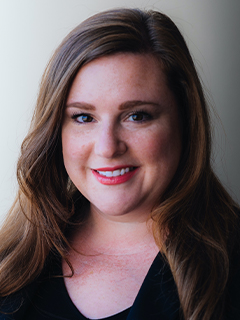
Casey Zampella, PhD
Scientist and Licensed Psychologist, Center for Autism Research
"I encourage young women pursuing STEM careers to surround yourselves with people — particularly other women — who build you up and who inspire you. There will be plenty of opportunities to suffer from 'imposter syndrome,' and having strong, smart, supportive women in your corner as mentors and peers can have a huge impact on your confidence and sense of competence. Celebrate your accomplishments, and don't be afraid to brag about yourself once in a while (even if it's just to the mirror). It's easy to feel like we aren't doing enough and to dwell on the things left undone. Take a minute each day to purposefully focus on your successes, and don't let them pass you by. Being a woman in STEM and academia comes with unique obstacles, and even the small wins are worth being proud of!"
Stephanie Mayne, PhD: 'Stay true to what drew you to STEM.'
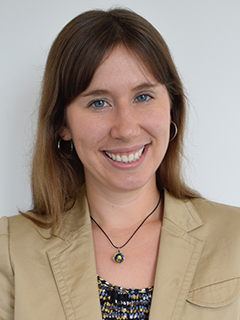
Stephanie Mayne, PhD
Assistant Professor of Pediatrics
"Science can feel very isolating at times, so relationships and community are really important, both for mental health and for doing better work. I have benefited tremendously from being part of a team, with incredibly supportive mentors, fantastic peer collaborators, and extremely talented research staff. Seek out mentors who support both your scientific ideas and your personal well-being, and collaborators who bring different skillsets and backgrounds that complement your own. Don't be afraid to try out new directions that interest you, especially if it gives you an opportunity to work with great people. But try to stay true to what drew you to STEM in the first place — that passion is there for a reason."
Jennifer Walter, MD, PhD: 'Trust in yourself.'
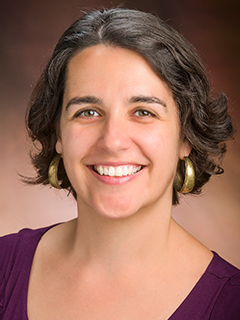
Jennifer Walter, MD, PhD
Attending Physician, Department of Pediatrics
"Trust in yourself, and don't let others define who you are or what contributions you can make.Being successful in a STEM career requires a lot of perseverance and will always include failures and setbacks.You can't take these too personally or lose sight of why you wanted to do this work in the first place.When I've felt overwhelmed, it has been helpful to me to remember those clinical experiences that drove me to do the research.These memories ground my commitment to supporting patients and families in the research I conduct and help me dust myself off again and keep going."
Stay tuned for more profiles in the next two installments of CHOP's Women in STEM series!